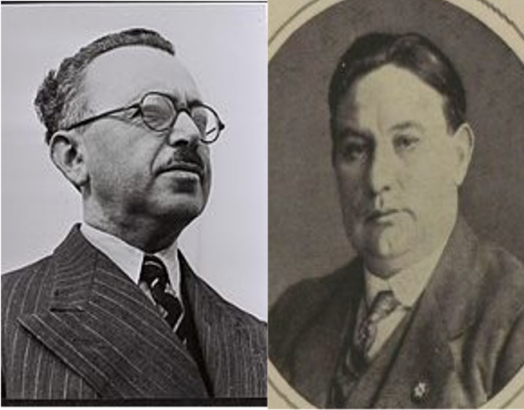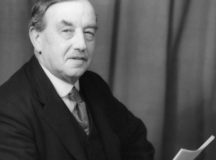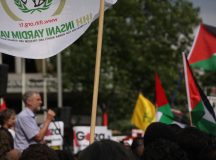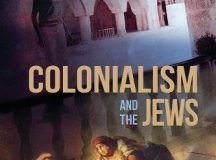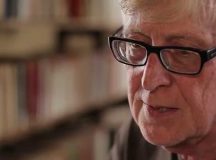At the Whitechapel and St. George’s by-election on 3 December 1930 Jewish voters directly influenced British policy on Palestine, effectively ending the Labour Government’s hopes of implementing the Passfield White Paper, which outlined plans for the Palestine Mandate over the next decade.[1] Labour won the by-election primarily because Poale Zion, the Jewish labour movement, had obtained concessions from the Government with regard to their proposals in return for mobilising the Jewish vote in support of the Labour candidate. Ronnie Fraser, author of a forthcoming study of the British trade union movement and Israel, tells the story.
Passfield and Palestine
The Passfield White Paper was the Labour government’s response to the Shaw inquiry into the August 1929 disturbances in Palestine. Shaw recommended that the government issue a clear statement of the policy they intended to pursue in Palestine, revise immigration policy ‘with the object of preventing a repetition of the excessive [Jewish] immigration of 1925 and 1926’ and announce an enquiry into the possibilities of land development in Palestine.[2]
The White Paper stated that while the British government did intend to fulfil its obligations to both Arabs and Jews, treating them both equally in Palestine, the development of a Jewish national home in Palestine was not considered central to the British Mandate. It also proposed that in future the Jews would need the approval of the British authorities before purchasing any additional land.
The Arabs saw the White Paper as vindication for their demands to halt Jewish immigration and land sales whilst the Jews viewed it as the British government reversing their support for the Balfour Declaration and the aims of the Mandate. There was an immediate international outcry which claimed that the proposals in the White Paper flouted the Mandate and demanded its withdrawal. The Zionists considered that the tone of the White Paper was decidedly anti-Jewish as it criticised both the Histadrut and the Jewish Agency for promoting the employment of Jewish-only labour. The primary aim of the Histadrut was the establishment of a Jewish national home in Palestine and all its activities were executed with this goal in mind. As the Histadrut was responsible for bringing Jewish immigrants to Palestine and finding work for them it promoted from 1928 onwards a Jewish-only labour policy. When it lent money or leased land for agricultural enterprises, it often inserted clauses insisting on the hire of Jewish labour only. With the booming economy in Palestine in the early 1930s this policy was only partially successful, but became more effective after 1936 when the political situation changed with the Arab general strike and rebellion.
As Britain’s economy was still in a poor state in 1928, 10 years after the First World War had ended, it was thought that support for the Labour Party would increase at the next general election and that the Labour Party might even be able to form the next government. This possibility was of concern to the World Zionist Organisation (WZO) and its leader Chaim Weitzman, as their main political contacts in Parliament were members of the Liberal Party. The WZO did not have the same level of support or connections in the Labour Party. David Ben-Gurion, the leader of the Jewish community in Palestine, saw that this was an opportunity for him to play a greater part in the work of the WZO, which had been previously denied to him, as the Histadrut, the Jewish labour movement in Palestine, already had good connections with the British Labour Party and the Trades Union Congress (TUC).
In 1928, with the WZO’s agreement, Ben-Gurion sent Dov Hoz to London as emissary for the Histadrut. Chosen because of his charisma and proven ability in making connections with people in authority, and because he was fluent in both English and Yiddish, Hoz’s mission was to promote the establishment of a Jewish state in Palestine with the wider public and especially within the Labour Party and the TUC. He was also tasked with rebuilding the standing of Poale Zion within the Labour Party, which had declined after it had affiliated to the Labour Party in 1920. Poale Zion was a Marxist–Zionist movement which was founded in Eastern Europe to promote Palestine as a Jewish homeland and had been active in Britain since 1905. When Ramsay MacDonald visited Palestine in 1922, Hoz, on Ben-Gurion’s instructions, had acted as MacDonald’s tour guide and their friendship had been renewed when Hoz arrived in London. Hoz encouraged the local branches of Poale Zion to campaign for the Labour party at the 1929 general election, a move which increased his standing with the senior leadership of the party. That election produced a hung Parliament. Labour held the largest number of seats, but MacDonald was only able to form a minority Labour Government with the support of David Lloyd George and his fellow Liberal MPs.
The Whitechapel by-election: ‘a rare opportunity for a very practical protest’
The Whitechapel by-election of 1930 was caused by the death of the constituency’s Labour MP, Harry Gosling. It could not have come at a more inconvenient time for Macdonald’s Labour government, the White Paper having been published on 20 October, only four days before Gosling’s death. Even though Whitechapel was considered to be a safe Labour seat, Gosling having had a 9180 majority at the 1929 election, nearly 40 per cent of the Whitechapel electorate were Jewish. Lloyd George, the former Liberal Party prime minister, summed up Labour’s problem when he told the Jewish Chronicle that the by-election offered the Jews of Whitechapel ‘a rare opportunity for a very practical protest against this government in respect to the way in which, since they have been in office, they have implemented the Mandate in Palestine’. [3]
It was vital for the minority Labour government to hold the seat. The party knew that their candidate would need the backing of the Poale Zion as Whitechapel was home to many Russian Jewish immigrants. However, the publication of the White Paper had changed everything. Poale Zion had to decide whether to support the Labour candidate or Barnett Janner, the Jewish candidate chosen by the Liberal Party, who was a leading member of the English Zionist Federation and opposed to the White Paper. If it supported Janner, Poale Zion would be aligned with many British Zionists as well as public opinion in Palestine. However, Poale Zion recognised that the by-election gave them the opportunity not only to demand the withdrawal of the White Paper but also to draw the attention of the Labour Party to the unfairness of its proposals.
Hoz had been joined in London by Sholmo Kaplansky who represented the international office of Poale Zion. As both men were in regular contact with the Labour Party leadership, Kaplansky wrote to Arthur Henderson, the Secretary of the Labour Party on 23 October expressing Poale Zion’s frustration and disappointment with the government’s White Paper, pointing out that the ‘voice of Downing Street is not the voice of Llandudno’.[4] His reference was to the Llandudno Labour Party conference held at the beginning of October 1930 which had adopted a Poale Zion resolution on Palestine that had been supported by the Labour Party’s National Executive. The resolution reaffirmed previous Labour Party policy pronouncements regarding the establishment of a Jewish national home in Palestine
The Central Committee of the British branch of Poale Zion then wrote to Henderson on the 28 October pointing out that the White Paper had shaken the confidence of the Jews ‘in the sincerity of the British labour movement’ and had ‘done incalculable harm to the Poale Zion as advocates of Labour policy’. The letter called on the Labour Party executive ‘to use its influence for securing the withdrawal of the White Paper even if this involves the resignation of the Minister responsible’. They linked the matter to the forthcoming by-election saying that ‘in an area which has a substantial Jewish vote … your reply will largely influence the Jewish vote in that constituency’. [5] The Labour Party executive took their protests seriously, replying to the Central Committee on the 29 October saying that at their meeting on the 27 October a deputation had been appointed to consult with various interests concerned with the Palestinian policy and had already discussed the Jewish point of view at length with Kaplansky and Hoz. The deputation would then be seeking an interview with the Prime Minister.[6] On 30 October the deputation wrote to the prime minister urging him to urgently issue a statement clarifying the government’s policy. They warned him that if another week elapsed before ‘an authoritative and more detailed explanation’ was published then ‘a position already peculiarly awkward’ would be ‘almost beyond recovery’.[7]
When Poale Zion heard a rumour that the government intended to nominate as the Labour candidate a junior member of the government, the Solicitor General Stafford Cripps, they asked Hoz to inform the Labour Party that they could not support a candidate who was a member of the government that had issued the White Paper. Once the government had realised Cripps was unelectable, Henderson asked Ernest Bevin, the general secretary of the transport and general workers union to stand, but Bevin turned him down. The union eventually chose James Hall, an executive member of the union, as the Labour Party candidate. Bevin knew that for Labour to win they would need the Jewish vote and Poale Zion’s support.
Hoz met with Bevin at the beginning of November and told him of Poale Zion’s concerns about the White paper and their conditions for supporting the Labour candidate which included three questions to help them to decide. The first asked if the exclusive employment of Jewish Labour upon Jewish land and in Jewish enterprises would affect Jewish immigration into Palestine, the second queried if Jewish immigration would be restricted, as long as there was Arab unemployment, and the third referred to the suspension of certificates of immigration. Bevin then wrote to the government saying that he agreed with Poale Zion and that unless the government was prepared to give reassurances he would not be party to his union’s candidate standing for Labour at the by-election. On 4 November, Bevin released a statement saying that the government had explicitly declared their intention to execute the Mandate exactly in accordance with all its terms and had no intention whatsoever of altering the interpretation of the Mandate. There would be limits on Jewish immigration and the government had no intention of limiting the expansion of the national home within the terms of Mandate.
Bevin told Hoz that he had obtained an emphatic ‘no’ from the government to his first two questions and with regard to the third, Lord Passfield had already lifted the suspension and had approved the requests for approximately 1,000 certificates for immigrants to Palestine.[8] Bevin also told him that although he could ensure that all 26 MPs sponsored by his union would vote against the government if it came to a vote on the White Paper, he was unwilling to force the issue as the government would be defeated. Bevin suggested that as the government was unwilling to revoke the White Paper, he would ask Henderson and Passfield for an agreement to clarify the controversial clauses on Jewish labour and the status of the Histadrut. They rejected his proposal but did agree to form a Cabinet committee to clarify the issues. Hoz again approached Bevin when the committee were discussing the matter. According to Gorny, Hoz told him that he was turning to Bevin and not the Zionist Executive ‘since I believe that if this grave flaw is not corrected, the document will be a blot on the British labour movement and the workers government’. Bevin agreed to the request and talked to Henderson and the offending clauses were eventually amended.[9] At Bevin’s suggestion Hoz sent him a draft paragraph that could be included in any future government statement to repudiate any misunderstanding concerning the Histadrut in the White Paper.[10]
Poale Zion also asked the Labour candidate, James Hall, for his views on the White paper. He told them that having examined the proposals in relation to the Balfour Declaration, the Mandate, the declared policy of successive governments, and the policy of the Labour Party, he had concluded that there were certain inferences in the document that he could not reconcile with the Labour Party’s past declarations. Hall also gave an undertaking that ‘if any attempt is made either by this government or by any other Government to depart from the spirit of the resolution of the Llandudno Conference which so clearly expressed the policy of our party, I will regard it as my duty to my Jewish constituents to vote against any such action’. [11]
The pressure on the Labour Party continued when on 7 November Poale Zion informed the party that a joint resolution had been adopted by their executive committee and the London branch asking the Labour Party for ‘a clear and unequivocal statement regarding its attitude to the White Paper’.[12] This was followed three days later by a letter from the National Jewish Labour Council, which represented British Jewish trade unionists, pledging its support for the Labour Party candidate but pointing out that it was ‘confronted with a difficulty, that of clearing the air somewhat in regard to the recent issue of the government White Paper on Palestine’ which was ‘vitally necessary if the sympathy of the large Jewish electorate in the constituency is to be enlisted on Labour’s behalf.’ The letter continued: ‘It is no secret that the policy of the Government as outlined in the White Paper has given rise to a good deal of dissatisfaction and even hostility to the government and as you are aware our opponents have not been slow in making political capital out of the situation’. The Council then reaffirmed its confidence in the Labour Party’s policy with regard to Palestine as expressed in the resolution adopted at the recent Party Conference at Llandudno. The letter concluded with a request that a message be sent to ‘the Jewish electors of Whitechapel clarifying the position and assuring them of the sympathy of the Party on this specifically Jewish question.’[13] The Labour Party also received protests, letters and telegrams from Socialist International, Poale Zion and trade union organisations in Glasgow, New York, Chicago, Boston, Montreal as well as the Palestine Labour Party.
As a result of Bevin’s intervention with the government and Hall’s undertaking to fight the White Paper, the Poale Zion central committee and the committees of all its London branches decided to actively campaign on behalf of the Labour Party’s candidate. They took the view that ‘the policy best calculated to safeguard the interests of the Jewish masses and the rights of the Jewish people in Palestine is to return Mr James Hall to Parliament, thus adding to the group of devoted Labour friends in Parliament one more supporter who will, like his predecessor in the Whitechapel division, represent in the House of Commons in the best possible way the interests and aspirations of the Jewish people’.[14]
British Jews Fall Out
Poale Zion’s decision to back the Labour candidate resulted in much criticism from fellow Zionists both at home and abroad. The Jewish Chronicle was at the forefront of the attacks and described Poale Zion’s policy a ‘traitorous course’ as they had ‘decided to oppose Jewish interests and vote for the Labour candidate, doubtless because they are far more concerned with the interests of Labour, as they see them, than with the interests of Judaism as every Jew knows them to be at this crisis in Jewish affairs’. [15] Maurice Rosette, the Poale Zion secretary, defended their actions in a letter to the editor by saying that they ‘realise that the action they are taking in supporting the Labour candidate in Whitechapel will lay them open to calumny and abuse from people who do not go deeply into the matter,’ adding ‘the Labour Party is the only party which has officially endorsed Zionist ideals’. He promised to continue to protest against the White Paper as ‘the document is in conflict with the considered opinion of the Party as expressed at the Llandudno Conference’.[16]
On the eve of the poll the Jewish Chronicle urged Jewish electors not to give their votes to the Labour candidate ‘for his success, should the votes he obtains be as great as or those given to the late member for the division, will mean the triumph of the government, who will draw from it an approval by a largely Jewish Constituency, of their Palestine policy … In the name of the unity of the House of Israel, and of all that is involved in respect to the future of our people, we appeal to the Jewish electors of Whitechapel to show their opinion of the present government’s policy in Palestine in the way we suggest by not voting for the Labour candidate on Wednesday next’. [17]
There was a similar reaction in Palestine amongst Histadrut members after it was reported that four of its leading members who were all in London at that time (Hoz, Kaplansky, Sprinzak and Arlozorov) had made statements in support of the Labour candidate. The newspaper Haaretz said it had received many letters from members of the Zionist Federation protesting against their leaders’ action in connection with the Whitechapel by-election, which it had not published out of respect for the Federation. They questioned how they could support a party that had published the White Paper. The Federation defended their actions in a statement which was prominently featured in their own paper Davar. The statement pointed out that the Federation delegates in London, as well as Poale Zion, had decided to strengthen the pro-Zionist group in the Labour Party because hostility by Labour MPs would be of no profit to Zionism.[18] The Revisionists called Hoz a traitor for supporting a non-Jewish Labour candidate over a Liberal Zionist Jew showing that his loyalty to the working class overcame his commitment to Zionism.[19]
Bevin also arranged for the Labour movement’s newspaper, the Daily Herald, to publish an uncensored statement from Poale Zion setting out their view of the White paper along with their decision to support the transport workers union candidate.[20] The paper also published an editorial saying that a government which betrayed its obligations to the Jewish people was not worthy of power.[21]
Poale Zion’s decision to support the Labour candidate was so unpopular amongst many of Whitechapel‘s Jews that their election meeting on 28 November was held under Police protection because of the threat of violent clashes between rival groups. Poale Zion had planned to use the meeting to protest at the White Paper and defend their decision to support the Labour candidate, but the meeting was continuously interrupted and eventually abandoned. Bevin, however, managed to deliver a forceful speech, saying that ‘the Transport workers had 26 members in the House of Commons. If the White Paper came up before the House they would all vote against it, as would also Mr Hall when he got there’.
Bevin expressed his opinion that the general tone and the attitude in the White Paper did not seem to him to be in accordance with what has been reaffirmed by the Labour Party conference. ‘The Jewish workers,’ Bevin went on, ‘could not afford to be separated from the rest of the working class and from the Labour Party and should stand by the Labour candidate and the solidarity of the workers’. [22]
Bevin’s behind the scenes efforts resulted in Hall retaining the seat for Labour from the Liberals but on a reduced majority of only 1,099 votes. Bevin thanked both Hoz and Kaplansky for their support, telling the former that ‘it was a bitter fight and it looked as if the cross currents would upset us’[23] and the latter that ‘it was great victory … I realise, and the members of this Union realise also, that we are indebted to you and your colleagues of the Poale-Zion for the invaluable assistance you rendered to Mr. J.H. Hall, at a time when such action on your part was likely to arouse much criticism from others.’[24] Kaplansky confirmed that Poale Zion had made the right decision and that Bevin’s support was critical to reversing the government’s stance saying in his reply to Bevin: ‘It was not a simple matter for the Poale Zion Party to do its duty as the Jewish section of the Labour Party and to face the Jewish electorate in the midst of the storm aroused by the White Paper on Palestine, which we have ourselves condemned as a staggering blow to the Jewish people and the Jewish labour Cause. Our task has been facilitated by the and loyal action of the National Executive of the Party, as well as by your own intervention, which have induced the government to reopen the question and to enter into negotiations with the Jewish Agency, Let us hope that as a result of this action, the White Paper of October will be superseded by a new statement of policy worthy of the traditions of the British Labour Movement….’[25]
The Aftermath
The Whitechapel result, along with the international campaign against the White Paper, ensured that the government had to find a way out of the crisis. There was now a strong possibility that Britain would be criticised by the League of Nations Permanent Mandate Commission, which oversaw the operation of the Mandate. The British government decided to open negotiations with the Zionist leadership and two months later MacDonald sent to Chaim Weizmann a response to the Zionist complaints, which became known as the ‘MacDonald letter’.[26] Although meant as a clarification of future British policy in Palestine, the letter was in effect an official withdrawal of the White paper. The Zionists and the Jewish voters of Whitechapel had won, as all the promises that Bevin had obtained from the government in return for Poale Zion’s support had been honoured. Although vilified by many Jews in Britain and Palestine for their decision to support the Labour candidate rather than Jewish Liberal candidate, Poale Zion’s tactics of supporting the Labour Party, rather than the government and asking for concessions was the correct choice. Whilst many countries were unwilling to admit Jewish refugees fleeing Nazi Germany after 1933, the withdrawal of the White Paper ensured that Jewish immigration to Palestine was able to continue.
It was only by working together as a team that Dov Hoz and Poale Zion were successful as neither would have been able to achieve the same result on their own. As one of Hoz’s roles in London was to rejuvenate Poale Zion it seems likely that the Llandudno motion, their first for nine years, was his suggestion and without it, it would have been a lot harder for him to gain Bevin’s support. The successful outcome allowed Hoz to build close relationships with the Labour Party leadership over the next decade which ensured continuing Labour support for a Jewish national home in Palestine. The role of Poale Zion in Britain vis a vis the Jewish labour movement in Palestine from then on continued to be one of support for the activities of Hoz and his colleagues, especially as they had the ability to submit motions to the Labour Party conference.
One unexpected outcome of the Whitechapel by-election was the friendship and mutual admiration that developed between Bevin and Hoz, which lasted until Hoz’s death in 1940. In 1929 Hoz described Bevin as ‘one of the most influential forces in the trade unions here. In the TUC and in the Labour Party, he appeared as a leader and as a guide, whose words are heard with admiration and trust.’[27] Hoz had introduced Zionism to Bevin, which Bevin acknowledged in an interview in 1932 saying that until the Whitechapel elections he had not known anything about Zionism. He explained that ‘English Labour knows little of it – absorbed in its own affairs we do not interfere in religious matters – we of course know that the Mandate was given, and we take that for granted, although we are pretty aware that England was playing a dishonest game in giving those two promises, and that she is continuing to play such a game right along. It is the same game she played when she planted Scotchmen in Ireland and created a situation that can never be solved.’ The interview ended with Bevin saying that ‘he does not see any way out of the mess in Palestine’.[28] Bevin continued to support the Jewish labour movement in Palestine throughout the 1930s. His relationship with Hoz and his fellow Zionists prospered so much that by 1941, they regarded him as one of their friends in the British War Cabinet.[29] The relationship soured once Bevin became Foreign Secretary in the 1945 Attlee government and Labour’s decision to withdraw from Palestine. The Zionists could not forgive Bevin, whom they had thought of as a friend and ally for abandoning the official sympathetic stance of Labour towards Zionism.
A year later, at the October 1931 General Election, there was a landslide victory for the National Government which had been formed after the earlier collapse of the Labour government and the split in the Labour party. Nonetheless, in the Whitechapel by-election of 1930, Jewish voters in Britain had directly influenced government policy. In return for Hoz and Poale Zion’s help in retaining enough of the Jewish vote to hold the seat for Labour, government concessions consigned the White Paper to a footnote in history.
References
[1] See http://www.jewishvirtuallibrary.org/the-passfield-white-paper
[2] See https://en.wikipedia.org/wiki/Shaw_Commission
[3] Interview with Lloyd George, Jewish Chronicle, 28 November 1930, p.15.
[4] Kaplansky letter to Henderson, 23 October 1930, Peoples History Museum Manchester, JSM/ZIO/35.
[5] Poale Zion letter to Henderson, Peoples History Museum Manchester, 28 October 1930, JSM/ZIO/41.
[6] Labour Party letter to Poale Zion, Peoples History Museum Manchester, 29 October 1930, JSM/ZIO/42.
[7] Deputation letter to the Prime Minister, Peoples History Museum Manchester, 30 October 1930, JSM/ZIO/45.
[8] Bevin’s statement, Peoples History Museum Manchester, 10 November 1930, JM/ZIO/51.
[9] Joseph Gorny, The British Labour Movement and Zionism 1917-1948, 1983, pp.92-94.
[10] Hoz letter to Bevin, 26 January 1931. Lavon archives, Israel, IV-104-49-2-41 LA.
[11] Poale Zion newsletter, Jan 1931, Peoples History Museum Manchester, JM/ZIO/79, p.11.
[12] Poale Zion letter to Labour Party, 7 October 1930, Peoples History Museum Manchester, JSM/ZIO/47 .
[13] National Jewish Labour Council letter to Labour Party, Peoples History Museum Manchester, 10 October 1930, JSM/ZIO/48.
[14] Poale Zion newsletter, Jan 1931, Peoples History Museum Manchester, JM/ZIO/79, p.12.
[15] Jewish Chronicle editorial, 21 November 1930, pp.6-7.
[16] Letter from Maurice Rosette to the Jewish Chronicle, 28 November 1930, p.20.
[17] Jewish Chronicle editorial, 28 November 1930, p.8.
[18] ‘Histadruth Members Irked at Leaders Support of Whitechapel Labor Candidate’, Jewish Telegraph Agency, 2 December 1930.
[19] Z. Goren, Dov Hoz, 1999, p.280.
[20] Daily Herald, 22 November 1930.
[21] Daily Herald editorial, 2 December 1930.
[22] Poale Zion newsletter, Jan 1931, Peoples History Museum Manchester, JM/ZIO/79, pp.12-13.
[23] Bevin letter to Hoz, Lavon archive, Israel, 8 December 1930, IV-104-49-2-41.
[24] Hoz letter to Bevin, Lavon archive, Israel, 8 December 1930, IV-104-49-2-41.
[25] Bevin letter to Kaplansky, Lavon archive, Israel, 11 December 1930, IV-104-49-2-41.
[26] See, http://www.jewishvirtuallibrary.org/the-macdonald-letter-february-1931
[27] Z. Goren, Dov Hoz, 1999, p.280.
[28] Elsie Gluck interview with E. Bevin, Lavon archive, Israel, 8 December 1932 , IV-104-49-1-40.
[29] Alan Bullock, Ernest Bevin, Foreign Secretary, 1982, p.165.

